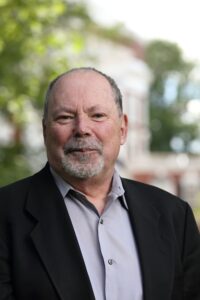 This is the second in the series of short statements from candidates in the coming CODATA Elections at the General Assembly to be held on 27-28 October 2023. Phil Bourne is a candidate for the role of CODATA Vice-President. He was nominated by the USA.
This is the second in the series of short statements from candidates in the coming CODATA Elections at the General Assembly to be held on 27-28 October 2023. Phil Bourne is a candidate for the role of CODATA Vice-President. He was nominated by the USA.
CODATA Statement: Impacting the Next Generation
CODATA is a respected, impactful organization. Its strategic connection to the International Science Council gives it a rare platform for driving impact by serving and anticipating the data needs of the world’s scientists, data stewards, and citizen scientists. Hence my interest.
I have spent my whole 40+ year career working with data and the science of data in particular. My interest in data stems from my science as an established biomedical researcher having published over 350 papers, 4 books and started 4 companies. My journey with data led me to co-develop the RCSB Protein Data Bank which became an exemplar scientific database and associated ontology. I was an author of the FAIR principles, the first chief data officer of the National Institutes of Health, a co-founder and the first President of FORCE11, a past member of the US Board on Research Data and Information (BRDI), Founding Editor in Chief of the open access journal PLOS Computational Biology and currently the Stephenson Founding Dean of the School of Data Science at the University of Virginia where we are currently teaching data science to 1000 (!) undergraduate and graduate students. It is this later development which drove me to engage with CODATA as a member of the US National Committee and to write a blog on what I perceive as parallel universes which has received considerable attention, starting with the US National Committee for CODATA. Let me explain.
If I ask those 1000 students and the faculty that teach them at the University of Virginia what they know of CODATA, it will be mostly blank stares. This is unfortunate as both universes have so much to offer each other. To elaborate. CODATA has global reach, the ability to convene and a mandate to do so through a hardworking collection of volunteers. Data science is an explosive field being taught and fielding research in every discipline in just about every institution of higher education. Surely it is time to bring these groups together in ways previously unexplored. This is what I would like to help CODATA with. Data science has the Academic Data Science Alliance (ADSA – I am on the Board) and a variety of chapters within computer science and engineering societies worldwide, but its organization is still very much in a formative stage. There lies the opportunity, a well established organization with a 57 year history meets a fledgling field at a time of unprecedented growth in that field driven by data that is impacting everyone on the planet. It’s time to impact the next generation. There will not be a better time.
Talk is cheap. In terms of action. I can see various discussions to begin the engagement. A real doozy would be to have CODATA and data scientists discuss the implication of data generation through generative AI. Thus, if elected, I would work with the CODATA leadership and broader community to find synergies and new areas of collaboration for academic data scientists and data practitioners and policy makers. Possible examples could include a broader partnership in the CODATA/RDA Schools of Research Data Science with ADSA, as well as bringing the successful models in WorldFAIR and other CODATA exemplars like the International Data Policy Committee and the DRUM task group to the academic data science community. I stand ready to support the new CODATA strategic plan, to be a boundary spanner with other organizations and agencies, and to advise the CODATA secretariat and community as other disruptive technological and policy changes occur.
